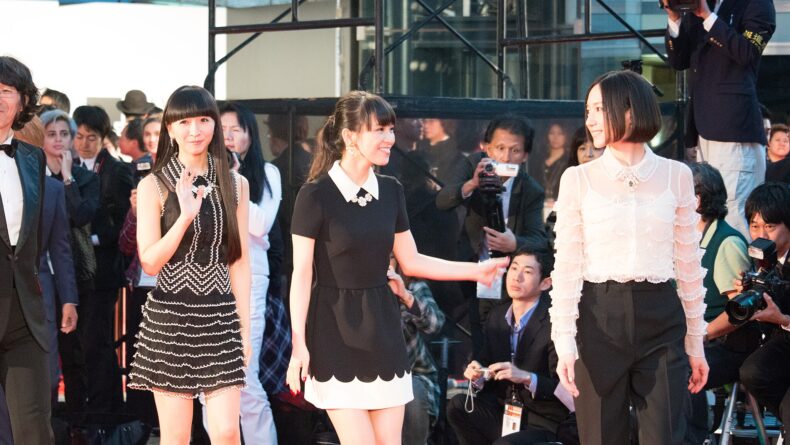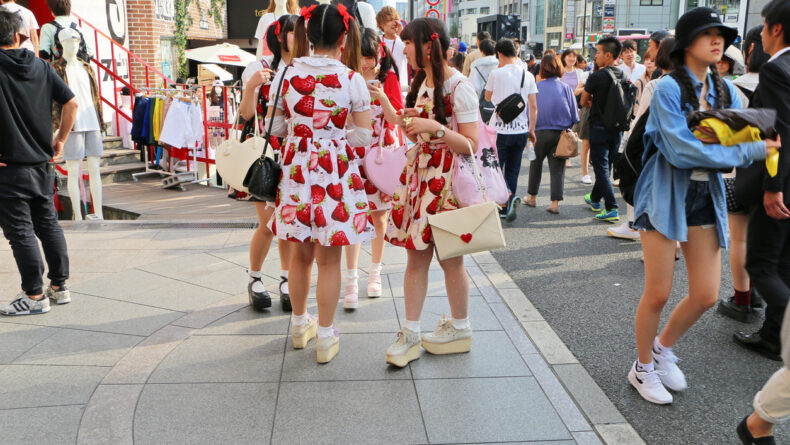Female Voices of Japan: Contemporary Film Directors & Screenwriters
Art Films, Animated Movies & Documentaries By Women
Whether through deeply personal narratives, social and cultural reflections, or lighthearted depictions of everyday life, female-led films help challenge conventional portrayals of women on screen.
Although women have long been underrepresented in filmmaking, recently, the 21st century has brought an era when more women are stepping behind the camera as directors and screenwriters. In Japan, women have carved out a space for art films, animated movies, documentaries and other visual works that present fresh perspectives on Japanese lifestyle and culture. In the following sections, we take a look at a few female film directors and screenwriters taking the lead in Japan.
Mika Ninagawa
A world-renowned art photographer and director, Mika Ninagawa’s visually stunning work is instantly recognizable for its explosive use of color. She made her directorial debut with Sakuran (2007). This film, which was screened at the Berlin International Film Festival, was praised for its dazzling visuals. In addition, known for framing portraits of powerful women surrounded by highly saturated florals, Ninagawa creates worlds in which reality and dream intertwine.
Ninagawa continued to explore her larger-than-life aesthetic in films like Diner (2019). This film is a crime thriller filled with theatrical sets and a riot of color. In Diner, a woman stumbles into a restaurant that serves professional hitmen. Ninagawa’s direction piles on vibrant imagery, from an abundance of flowers to outrageous, decadent meals.
Yui Kiyohara
Yui Kiyohara is one of Japan’s promising young filmmakers. She focuses on quiet, introspective storytelling. Notably, her debut feature, Our House (2017), won the Grand Prize at the Pia Film Festival. As a result, it made waves internationally for its delicate portrayal of human relationships. With an understated, lyrical style, Kiyohara shines a light on ordinary women.
Similarly, Kiyohara’s latest work, Remembering Every Night (2022), gently peers into the lives of three women whose paths intersect on a summer day in Tama New Town, a Tokyo suburb. In essence, the film is a meditation on memory. It captures the fleeting moments of daily life with long, meandering shots that immerse viewers in the flow of time. Ultimately, Kiyohara’s exploration of hidden emotions and forgotten memories invites viewers to reflect on their own lives.
Naomi Kawase
Naomi Kawase is one of the most internationally recognized Japanese directors. Her work is often rooted in the landscapes of Nara, where she was born. Kawase is frequently described as an auteur—a director whose personal vision is so integral to their film that they are seen as its author. Beginning her career with experimental documentaries, Kawase’s early films explored the intersection of nature, tradition and family, at times blurring the lines between fiction and autobiography. Kawase gained early recognition with her documentary Embracing (1992). She then went on to become the youngest filmmaker to win Cannes’ Camera d’Or with Suzaku (1997).
In True Mothers (2020), Kawase adapts a novel about an adoptive couple confronted by their child’s birth mother. The film, grounded in the intimacy of familial relationships, is imbued with her signature style—tender visuals, serene landscapes and an ever-present sense of reflection. Moreover, Kawase’s ability to evoke a character’s sense of purpose and meaning in life has made her a leading voice in contemporary Japanese cinema.
Miwa Nishikawa
Miwa Nishikawa is known for her ability to blend raw and honest storytelling with social commentary. She was discovered by director Hirokazu Koreeda and made her directorial debut with Wild Berries (2003). Following this, she released the highly successful Sway (2006), which explores complex family dynamics. Miwa Nishikawa’s films often tackle moral ambiguities, presenting characters at pivotal moments in their lives.
Her film Under the Open Sky (2021) centers on an aging ex-convict who is struggling to reintegrate into society after decades in prison. Throughout the film, he grapples with his past in a world that seems to have moved on without him. Furthermore, Nishikawa is praised for her careful attention to character development and her refusal to simplify their motivations. As a result, her work invites viewers to engage deeply with the complexities of each character’s journey.
Junko Hirata
Junko Hirata, an accomplished documentary filmmaker, has been producing art films since joining Telecom Staff in 2000, capturing visual, literary and performing arts. Hirata’s filmography includes award-winning works such as A Tale of Love in Three Generations (2004), Japanese Memories (2010) and Nanyadoyara: Songs for the Dead and Alive (2012), which portrays Tohoku after the 2011 Great East Japan Earthquake.
In Shunga: The Lost Japanese Erotica (2023), Hirata examines Edo-period erotic prints known as shunga. Specifically, she gives voice to the artisans, collectors and scholars who keep this art form alive. Additionally, she reveals techniques used by artists who delicately restore or recreate ukiyo-e woodblock prints. Ultimately, her attention to detail invites viewers to appreciate the aesthetic beauty of these works and understand the social and historical context that gave rise to this genre.
Naoko Ogigami
Known for her quirky, feel-good films, Naoko Ogigami brings a distinctively warm and humorous voice to her storytelling. After studying film in the United States, she returned to Japan to direct films like Kamome Diner (2006) and Rent-a-Cat (2012). These films won her a loyal following both in Japan and abroad. Ogigami’s films often depict strange yet endearing characters caught in unexpected circumstances.
Her latest work, Maru (2024), tells the story of a struggling art school graduate who accidentally becomes a famous artist after drawing a simple circle that goes viral. Before this, he lived what felt like a monotonous life, working to fulfill someone else’s artistic vision. Like the circle, Ogigami’s films highlight the beauty in simplicity and the every day, as well as the importance of connection in a lonely world.
Naoko Yamada
Naoko Yamada is one of Japan’s top animated film directors. After joining Kyoto Animation, Yamada directed the immensely popular K-On! series about teenage girls in a band and its 2011 film adaptation. Moreover, her film A Silent Voice (2016) was praised for its sensitive portrayal of bullying, mental health and disabilities, as well as for her ability to understand the emotional nuances of her characters.
Yamada’s latest film, The Colors Within (2024), tells the story of a young musician who perceives the personalities of those around her through colors. In this animation, Yamada uses light, color and music to evoke the inner world of her characters. Notably, the theme song “In the Pocket” was written by Mr. Children, one of Japan’s leading pop-rock bands.
Atiqa Kawakami
Atiqa Kawakami is a prominent filmmaker known for sharing and preserving cultural narratives. She began her career with the award-winning documentary Pilgrimage (2001) which depicted the forceful imprisonment of Japanese Americans during World War II. She went on to create intimately detailed documentaries on Japanese art forms, including kawachi ondo (traditional folk music) and rakugo (traditional comic storytelling).
Her latest documentary, With Each Passing Breath (2023), follows the journey of Kosome, a young woman who aspires to master rokyoku, a form of narrative singing accompanied by the shamisen. Over the course of five years, Kawakami captured Kosome and her mentor, Koryu Minatoya, whose declining health slowly drained the power of her voice. Through her lens, Kawakami peers into homes, practice rooms and concert halls, effectively portraying the lives of performers and their role in bringing traditional arts to a modern world.
More Female Voices of Japan:
- Female Voices of Japan: Unforgettable Projects & Performances
- Female Voices of Japan: Exploring Japan’s All-Female Bands and Ensembles
- Female Voices of Japan: 10 Multicultural and Half-Japanese Women Authors
Keep the conversation going! Tell us about your favorite Japanese films by female film directors or screenwriters.
















Leave a Reply